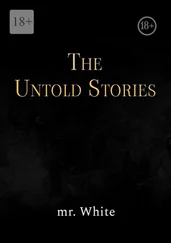Because all this time the corn song destroyed the frailer human reed. It destroyed the tons of pork the man’s firm had canned. It dumped the man’s cans beside the railroad track. It consumed the man’s plans for better pork. The well-laundered, closely-shaven man scratched his slack white muscles through his beautiful, hygienic shirt, and could not understand. He could not understand why, beside the strong yellow notes of corn, his voice should fall short. He chewed popcorn, chewing for confidence, the white and pappy stuff that is a decadence of corn.
Theodora heard the difference between doing and being. The corn could not help itself. It was. But the man scrabbled on the surface of life, working himself into a lather of importance under his laundered shirt. She heard the man’s words, which were as significant and sad as the desperate hum of telephone wires, that tell of mortgages, and pie, and phosphates, and love, and movie contracts, and indigestion, and real estate, and loneliness. The man said that the population of Chicago had risen from 2,701,705 in 1920 to 3,376,438 in 1930. The population was being raised all the time. But in Chicago also, Theodora had seen the nun who danced along the sidewalk, unconsciously, for joy, and the unnaturally natural face of the dancing nun had sung some song she had just remembered. The nun’s feet touched grass. So that Theodora smiled now. And the man in the perfect shirt was encouraged. He leaned forward to tell the populations of Kansas City, St Louis, Buffalo, and Detroit.
So they were getting somewhat at last.
In her turn, Theodora tried to remember some population of her own. But she could not. She tried to remember some unusual game that is played after adolescence. Because it was time, she saw, that she contributed to ease the expression on the man’s face, that was an expression of expectation, and sympathy, and pain. But she could not. And the man, sitting back, said that, anyway, it would be fine for her folks to have her back home after so much travelling around. It would be safe. The man had read his papers, it seemed. Europe, he said, was a powder magazine, all hell was waiting to be let loose. Then he sat back. He had done his duty. He had composed life into a small, white, placid heap.
Theodora remembered she was in America and going home. She remembered the letter to Fanny in which she had written:
My dear Fanny,
I am writing to say that I have seen and done, and the time has come at last to return to Abyssinia. Because I like to allow for events, I cannot say when I shall be with you, but probably some time in the spring, that is, of course, your Abyssinian spring …
‘Theo is coming home,’ announced Fanny Parrott. ‘What is more, she appears to be quite mad.’
Fanny dug at her cup, to sweeten her annoyance with the dregs of sugar. With the tips of her teeth she bit the half-melted sugar and looked apprehensively at her safe room. A room is safest at breakfast. At Audley the mail arrived in the afternoon, but Fanny had deferred Theodora’s letter, waiting for the safer moment of stiff, sweet porridge, and the consoling complacency of bacon fat, when she too was stronger. Though even so.
‘Well?’ said Frank, who was fitting bacon, lean, fat, lean, half a kidney, a square of toast, and a little gravy, on to his fork.
Thought was slow and comfortable as breakfast. No one should destroy Frank Parrott. He was stronger than Theodora. He wiped the gravy from his mouth.
‘We are not committed to Theo,’ he said. ‘Theo has always led her own life.’
If guilt stirred, and impinged on Frank Parrott’s conscience, it quickly congealed. He swallowed down a mouthful of fat meat, and felt personally absolved.
‘But she is my sister,’ Fanny said.
‘Well?’
‘I have my conscience,’ said Fanny.
As if this wistful thing might break.
‘And I cannot bear it if you sit there saying well . I would rather you made no comment.’
Because she had begun to enjoy nerves. It was one of the many peculiarities which made her superior to Frank, and which a man accepted. Besides, his financial status and social position justified a wife who had nerves, and could pronounce French, and knew what to say to an Honourable.
But there were moments, too, when Frank Parrott was the Lord, when Fanny watched, and Frank Parrott was thick and red, and Fanny was glad. Fanny watched Frank push away his plate, both to assert his authority and because he was finished. Frank Parrott went and stood against the fire. To roast his rump. He was thick and red. His thick, polished leather legs were stood apart and striped with fire. When he had cleared the phlegm, Frank would speak, but not before. Now he was choosing words, like a fat sheep out of a pen. Fanny watched, her breath just thicker than porridge. There is a time in life when there are pretty long stretches of contempt, broken by the bubbling moments of lust, which are also called love. So Fanny loved Frank. He was the father of her complacency.
‘There is no reason why we should put ourselves out for Theodora,’ said Frank. ‘Theo has never put herself out for us.’
‘No, Frank,’ said Fanny. ‘It is true.’
She was struck by the sudden loveliness of truth.
‘And Theo will be happier in some good solid boarding house,’ said Frank. ‘With a mob of similar old girls.’
‘Yes,’ said Fanny. ‘We can take a nice room for her.’
‘Somewhere where she can show her postcards after dinner to the other old girls.’
Warmed by fire, his great acreage could dispose of more than souls, the bodies of sisters-in-law.
‘There is no need,’ said Fanny, ‘to be unkind.’
But she smiled. Now she touched the envelope of Theodora’s distasteful letter with less care. Fanny loved letters, but the comfortable narrative of wives and mothers, or some harmless appeal by charity, which she would allow to stroke her vanity before tearing up. Not the dark, the mad letters of Theodora. Before Fanny could destroy these, they had torn her.
‘And Theo is not so old,’ she corrected. ‘She can’t be more than forty-five.’
‘Old enough to have learnt sense,’ said Frank.
‘Mother,’ said Lou, ‘why is Aunt Theo mad?’
Outside the window the world had not yet thawed. Lou waited for the aching shapes of winter to dissolve into a more familiar fence and tree. Cutting toast, her hands were still miserable from Brahms.
‘What a thing to ask!’ said Fanny. ‘As if … It is difficult to say. But it is none of your business.’
Lou would not ask more.
‘It is a manner of speaking,’ said her father.
‘No,’ said Fanny, raising her voice to the bright confident pitch that parents adopt for the presence of children. ‘Theodora is not so old.’
‘But stringy,’ said Frank. ‘The type that does not die.’
‘Oh, Frank!’ laughed Fanny.
Her labours to establish respect were wasted.
‘Poor Theo!’ she laughed. ‘How cruel!’
Then Fanny took a knife and slashed the butter. She owed this for something that continued to rankle, under her laughter, unexplained, for Abyssinia perhaps.
The sun was still a manageable ball above the ringing hills as Lou went outside. She walked through this stiff landscape, carrying her cold and awkward hands. She thought about the cardboard aunt, Aunt Theodora Goodman, who was both a kindness and a darkness. Lou touched the sundial, on which the time had remained frozen. She was afraid and sad, because there was some great intolerable pressure from which it is not possible to escape.
Lou looked back over her shoulder, and ran.
Sometimes against the full golden theme of corn and the whiter pizzicato of the telephone wires there was a counterpoint of houses. Theodora Goodman sat. The other side of the incessant train she could read the music off. There were the single notes of houses, that gathered into gravely structural phrases. There was a smooth passage of ponds and trees. There was a big bass barn. All the square faces of the wooden houses, as they came, overflowed with solemnity, that was a solemnity of living, a passage of days. Where children played with tins, or a girl waited at a window, or calves lolloped in long grass, it was a frill of flutes twisted round a higher theme, to grace, but only grace, the solemnity of living and of days. There were now the two coiled themes. There was the flowing corn song, and the deliberate accompaniment of houses, which did not impede, however structural, because it was part of the same integrity of purpose and of being.
Читать дальше












